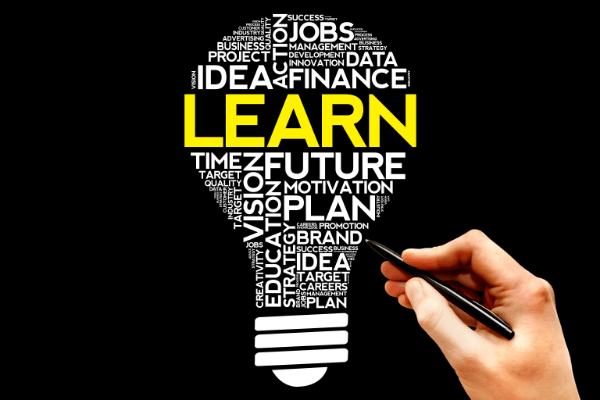You can sign up to our LinkedIn newsletter here.
9 – Attitude to Learning
There is some very interesting research, which has looked at the attitude to learning in young people, which, I think, translates very strongly to anybody, in whatever walk of life they are.
Fixed v. Growth Mindset
Essentially, they identified two types of young people. Those who believe that they had a fixed amount of talent. Often, they were talented and they believed that this talent determined their future success. There were others who believed that they had unlimited access to new capability and that diligence in developing that capability, was what led to success. They had a growth mindset. Those with a fixed mindset were less likely to work hard or stretch themselves to succeed. Those with a growth mindset were ready to work diligently, evolve their skills and find new areas in which to develop.
You may recognise people who, early in their careers are successful and, as they put it down to a fixed amount of talent, they don’t continue to invest in developing and building their capability. So, you see them topping out quite early. Often, they end in a career cul-de-sac, where they can’t get any further. This can be particularly true of professional people who go to university, get chartered and then rely only on their professional skill, but don’t continue to learn other complementary skills of management, leadership, influencing and communication that allow them to build their working life.
Continuous Micro Learning
But there is a richer attitude to learning, which I feel is even more powerful in building success. You hold a relentless curiosity so that you see every person you meet, every situation you’re in, every challenge you face, every disappointment you recover from as an opportunity for learning.
When I started working in big consulting, I was very impressed by one of the senior managers I was working with, who, when we came out of a meeting with a potential client, immediately sat us down and asked, ‘Okay, what went well? And what could we have done differently?’.
Just in the moment, after a one-hour meeting with a client, he wanted to capture the learning however small. It was a habit. Every single time he had an encounter with a client, he wanted to reflect on the learning.
Openness to New Learning
This practice of reflection on your experiences is a very powerful way to be open to new learning. But how often do you read a new book, listen to an audiobook or engage with the podcast? How often do you read a content from a publication with whose opinions, you would not necessarily agree? How often do you go and find a new experience, whether it’s physical or emotional or artistic or cultural? This is an attitude to experiencing new things and then choosing to draw on the opportunity for learning. Just a new experience is not enough. The attitude to learning generates the question, ‘What can I learn from this?’.
Different people look at learnings in different ways. Some people want to slot it into a meta view of the whole universe and use it to confirm their understanding of the whole universe.
Other people are content to just see this learning as something that is relevant to the context and that can potentially be applied to another context.
Could Learning Release you into New Joy?
But whatever the way in which you engage with that learning, the most important thing is you are continuing to want to learn.
Perhaps you’ve got to a stage in your life where you’re just bored with the day to day. Is it time to learn a new language? Or learn a new skill? Or engage with a different group of people? Step out and work in a charity among people that you would never otherwise encounter? This richness of this attitude to learning will keep you enlivened and help you to have the right attitude you need for success. Not only now but into the future for as far as you can see.
When complaining children say, ‘I’m bored’, parents tell them, ‘it’s because you are being boring’. They challenge those children to go out and find something new to do. That truth applies throughout life.
Conclusion
Policy makers plead for investment in ‘Lifelong Learning’. Typically, this is a demand for more access to learning from academic institutions that is usually costly, inefficient and time intensive. I am an advocate for ‘Whole Life Learning’. This is an attitude of relentless curiosity that drives habits of continual discovery and reflection in everyday life. I choose to engage with a wide variety of entrepreneurs and professionals, in a wide variety of sectors, across multiple continents. In addition, over the last 10 years, I have recruited, developed and facilitated workshop speakers, that have delivered more than 200 workshops. I have developed at least 10 courses or workshops myself. I have invested in at least 15 days paid for development each year.

Charles McLachlan is the founder of FuturePerfect and on a mission to transform the future of work and business. The Portfolio Executive programme is a new initiative to help executives build a sustainable and impactful second-half-career. Creating an alternative future takes imagination, design, organisation and many other thinking skills. Charles is happy to lend them to you.
